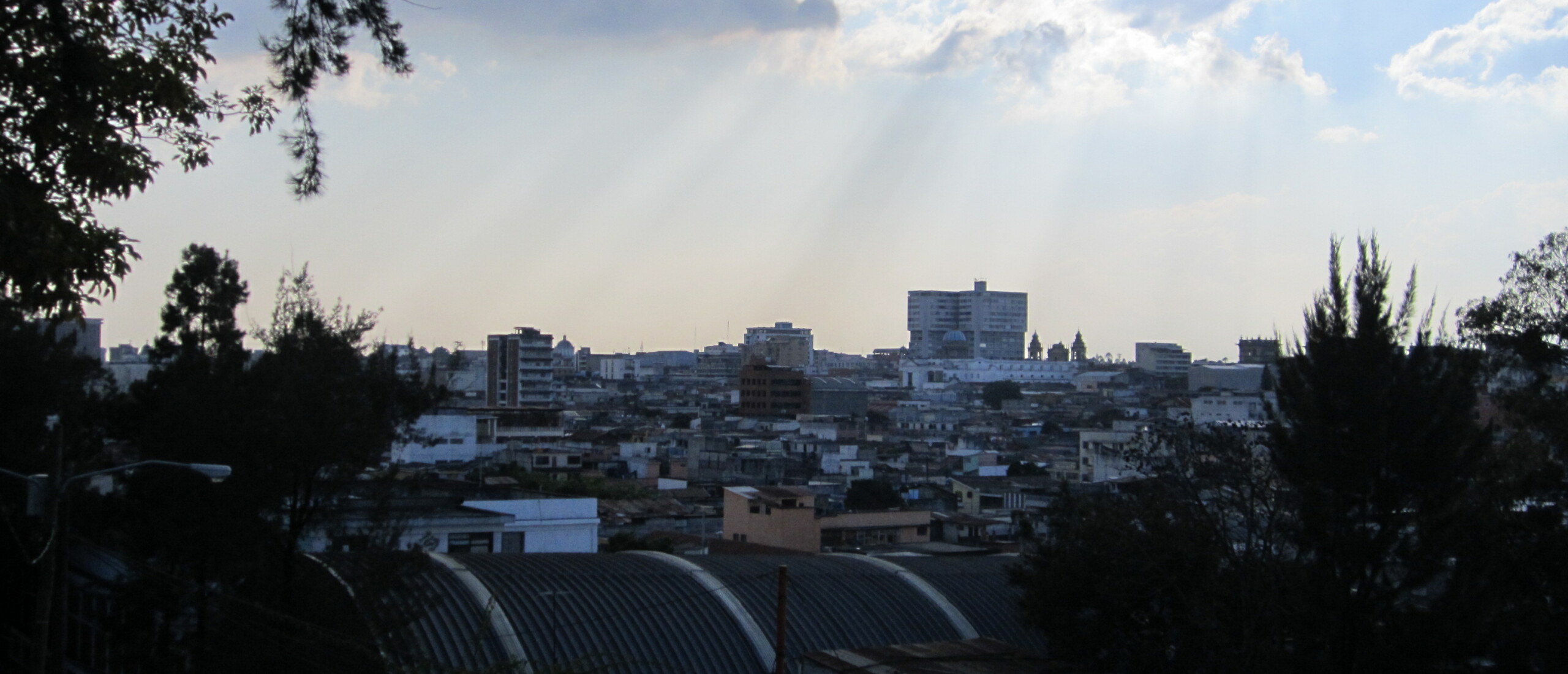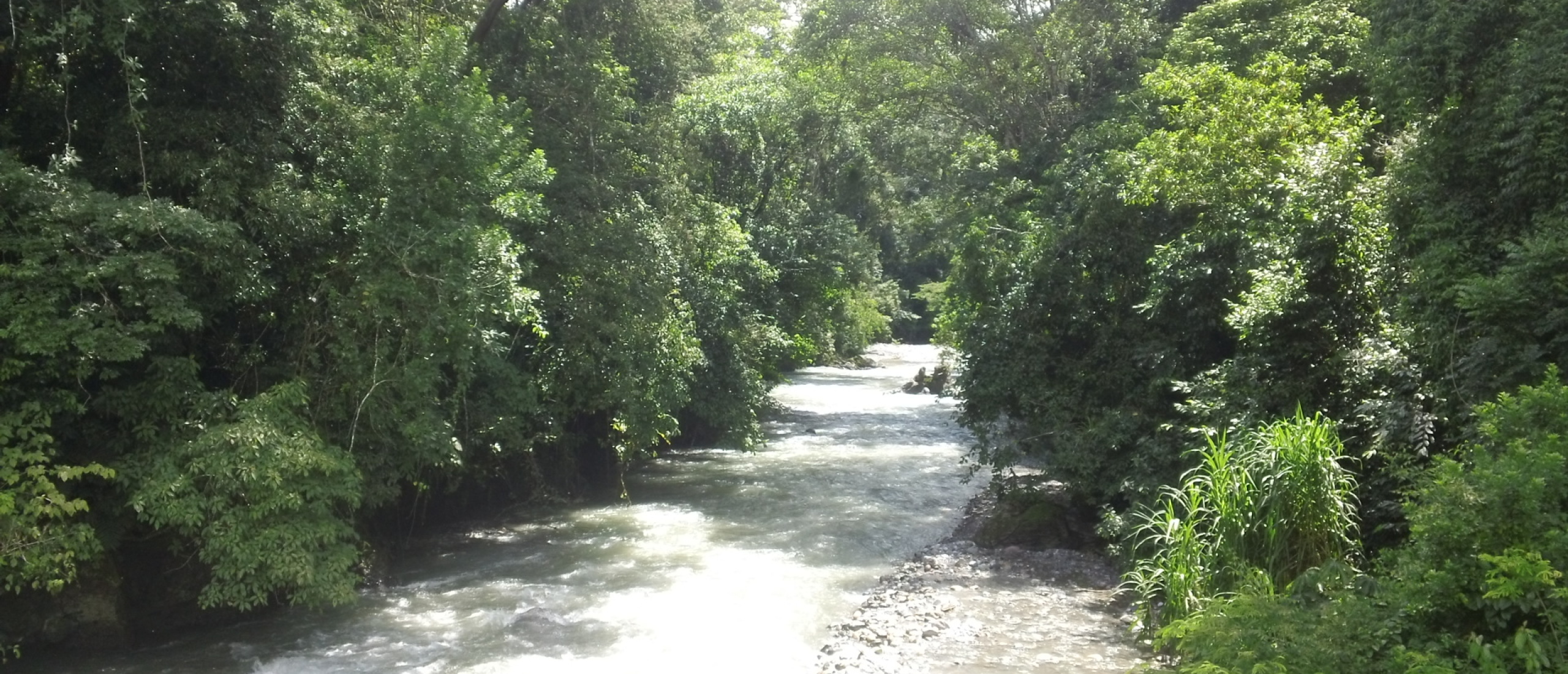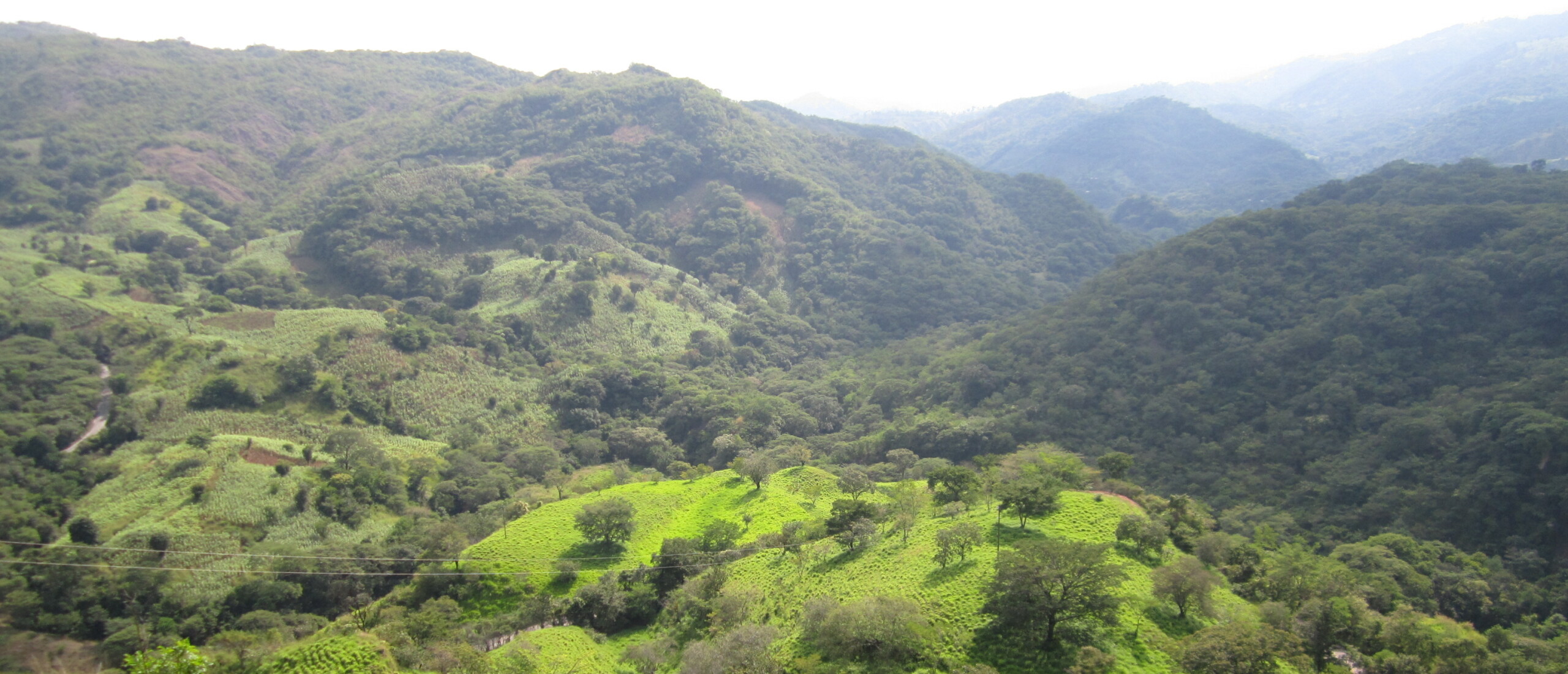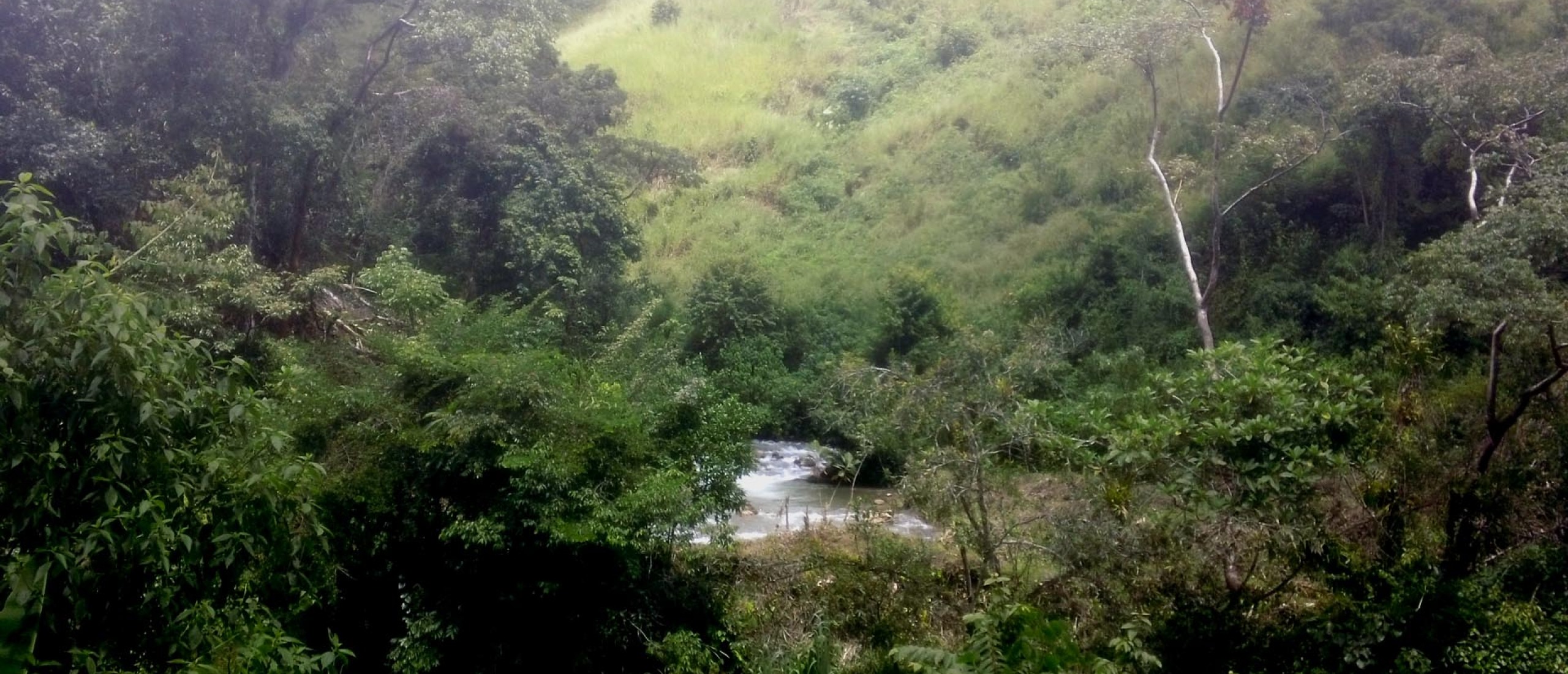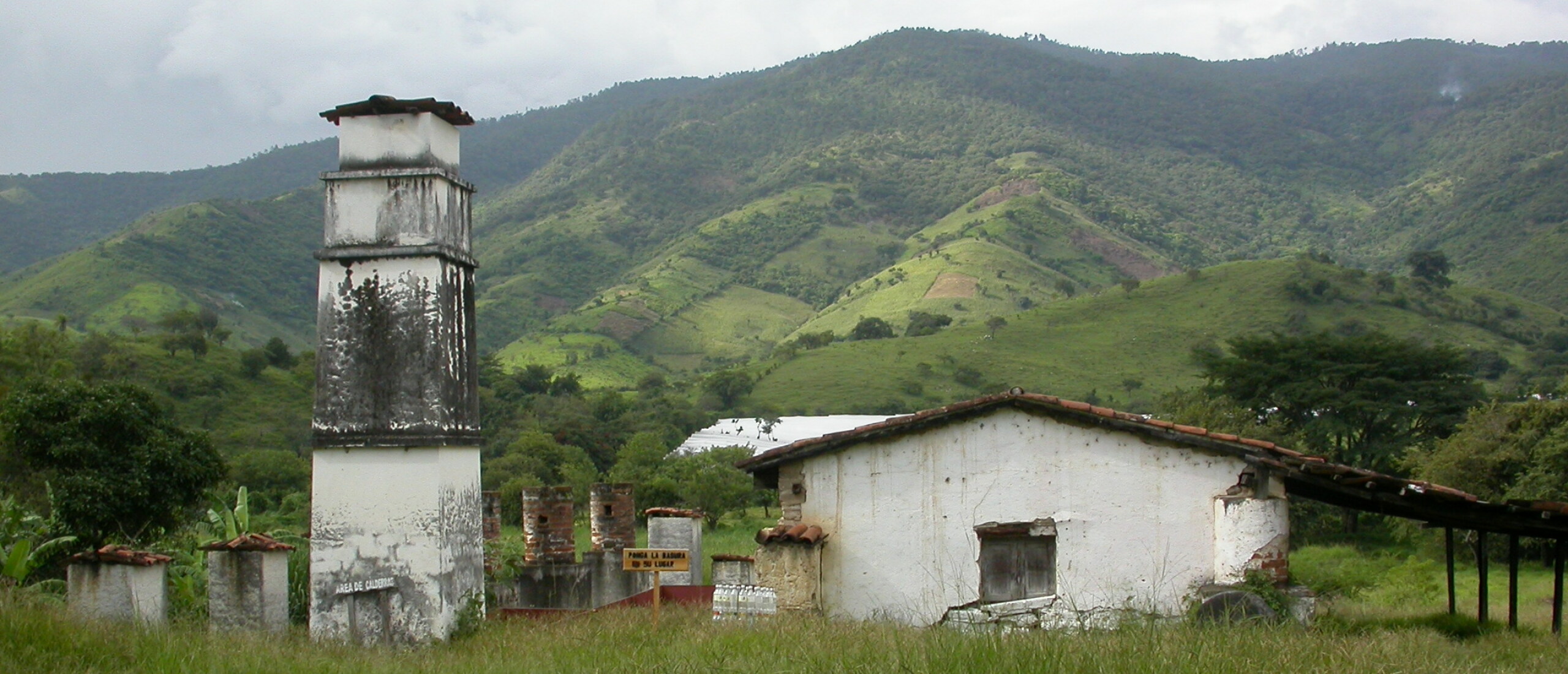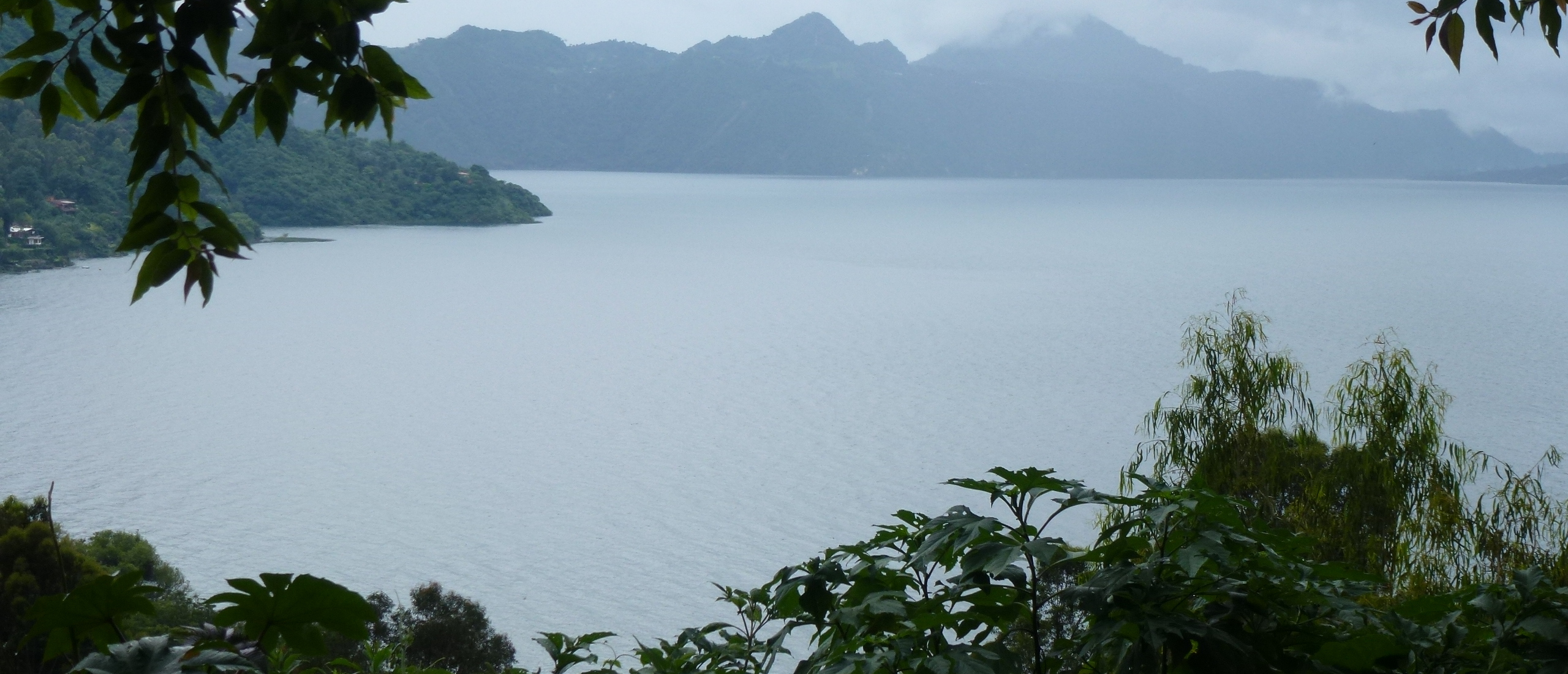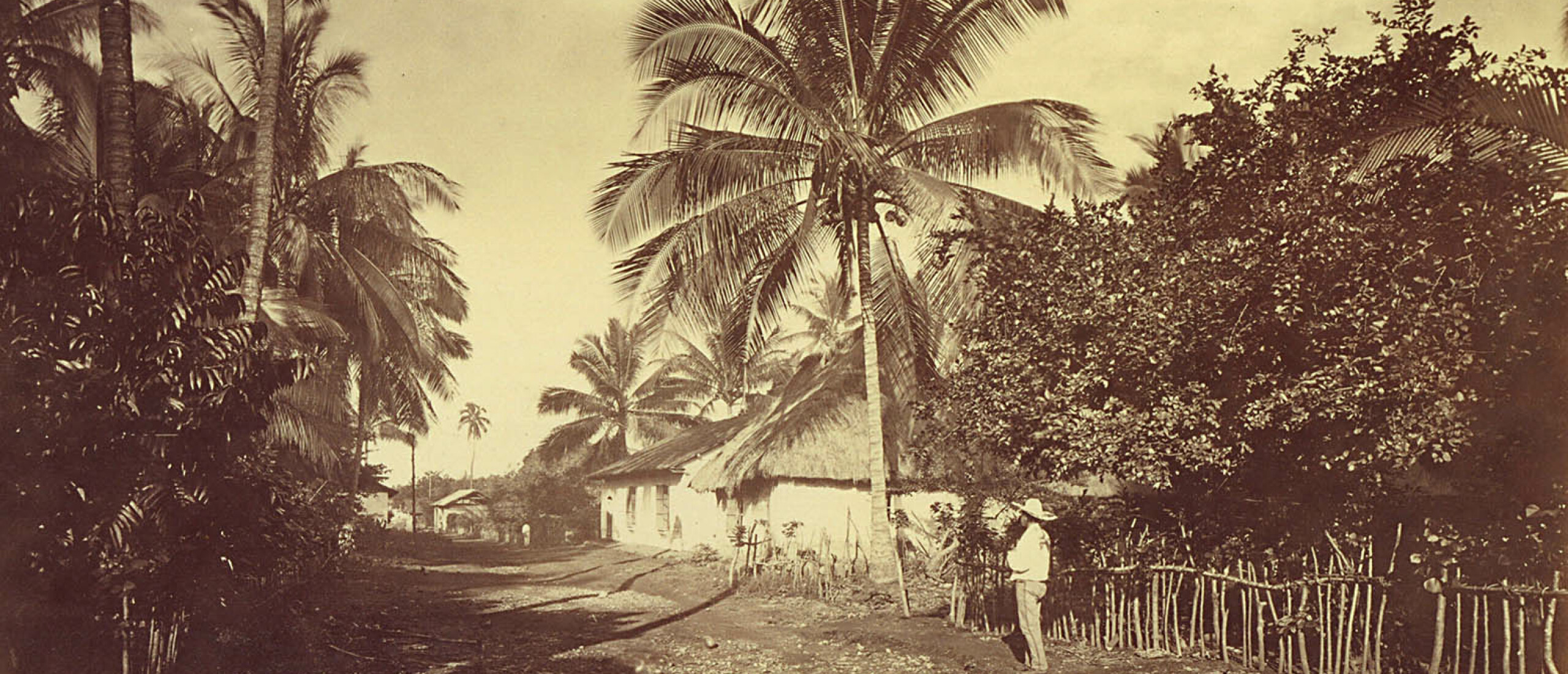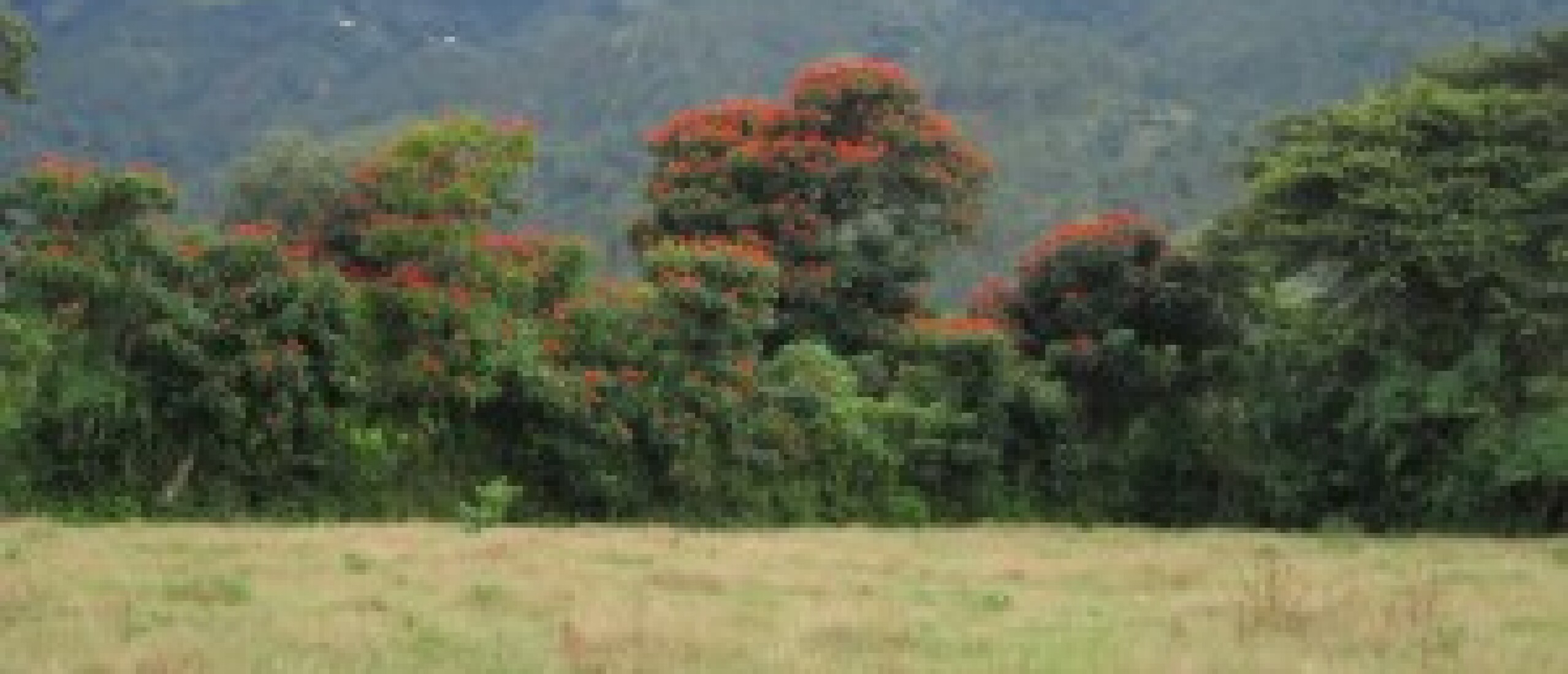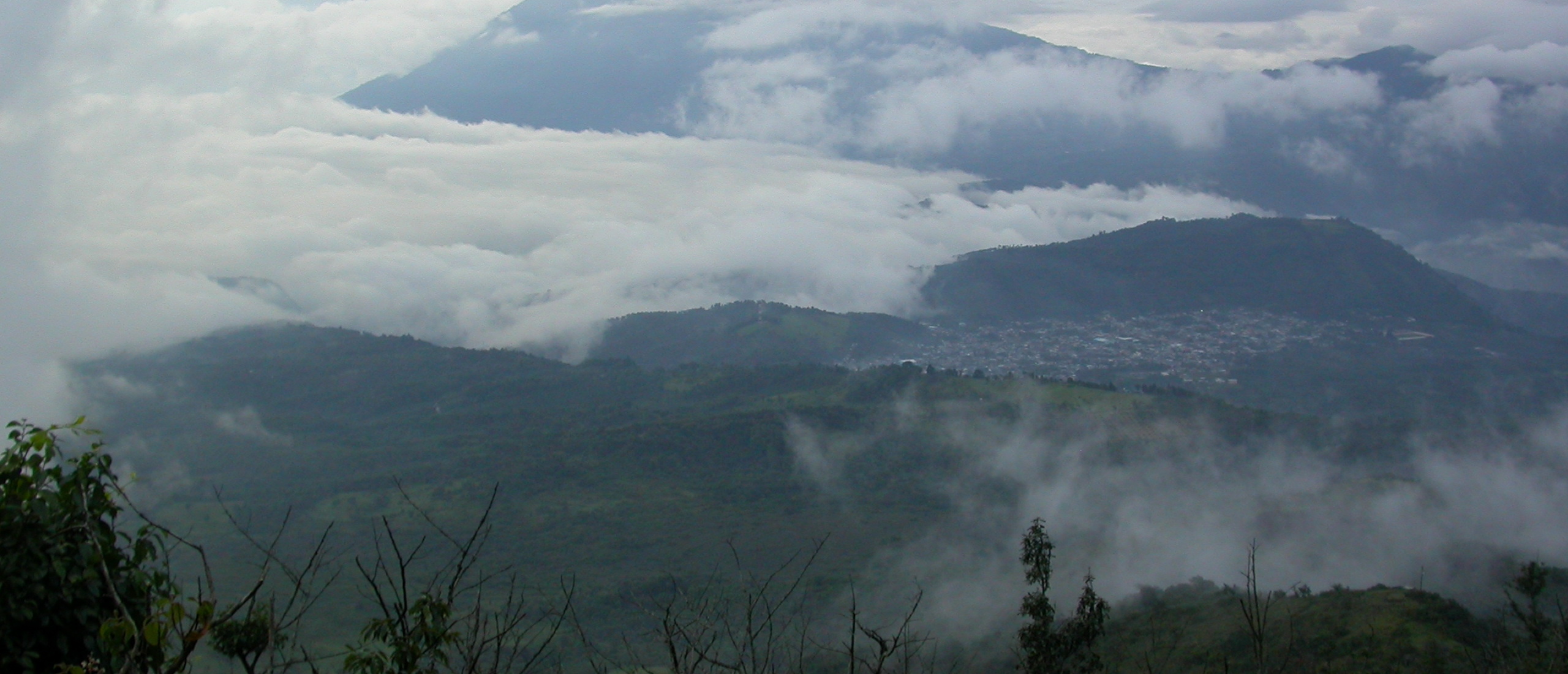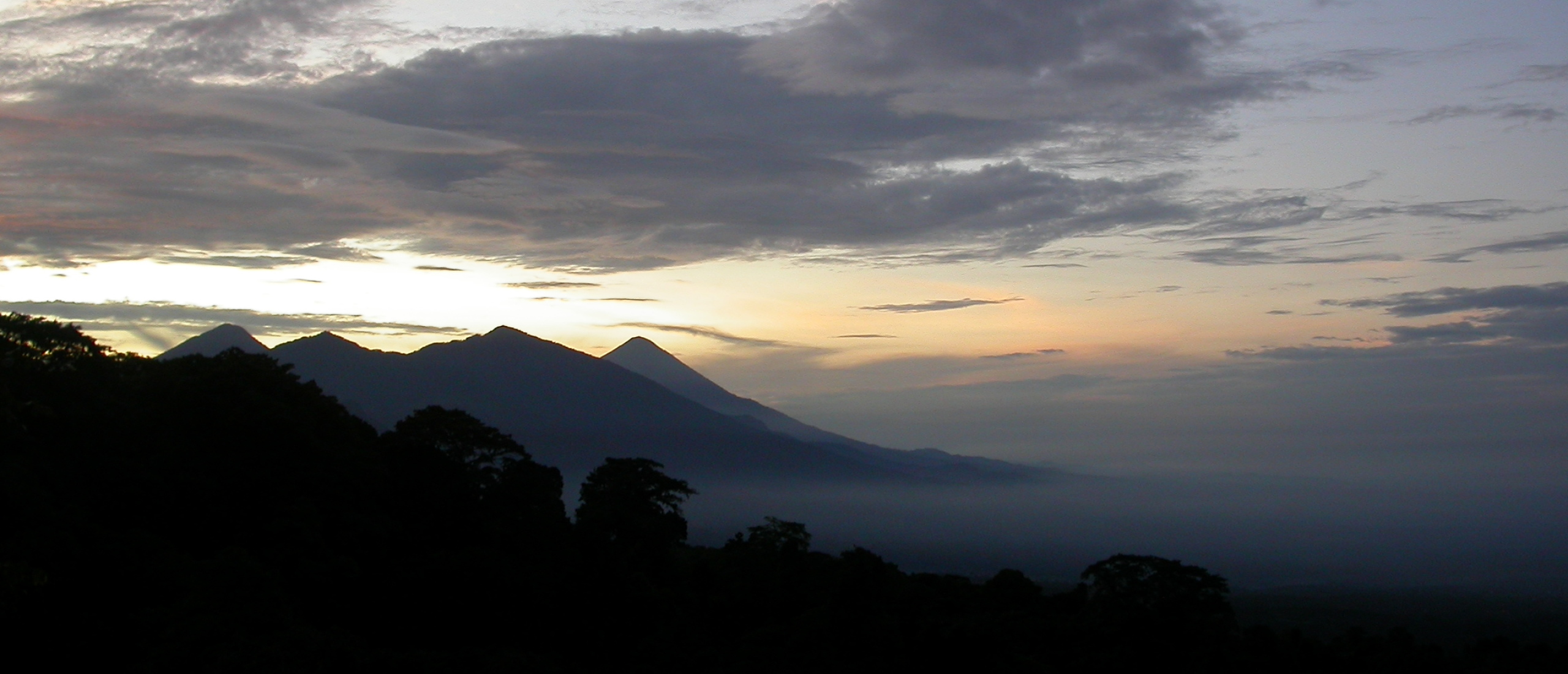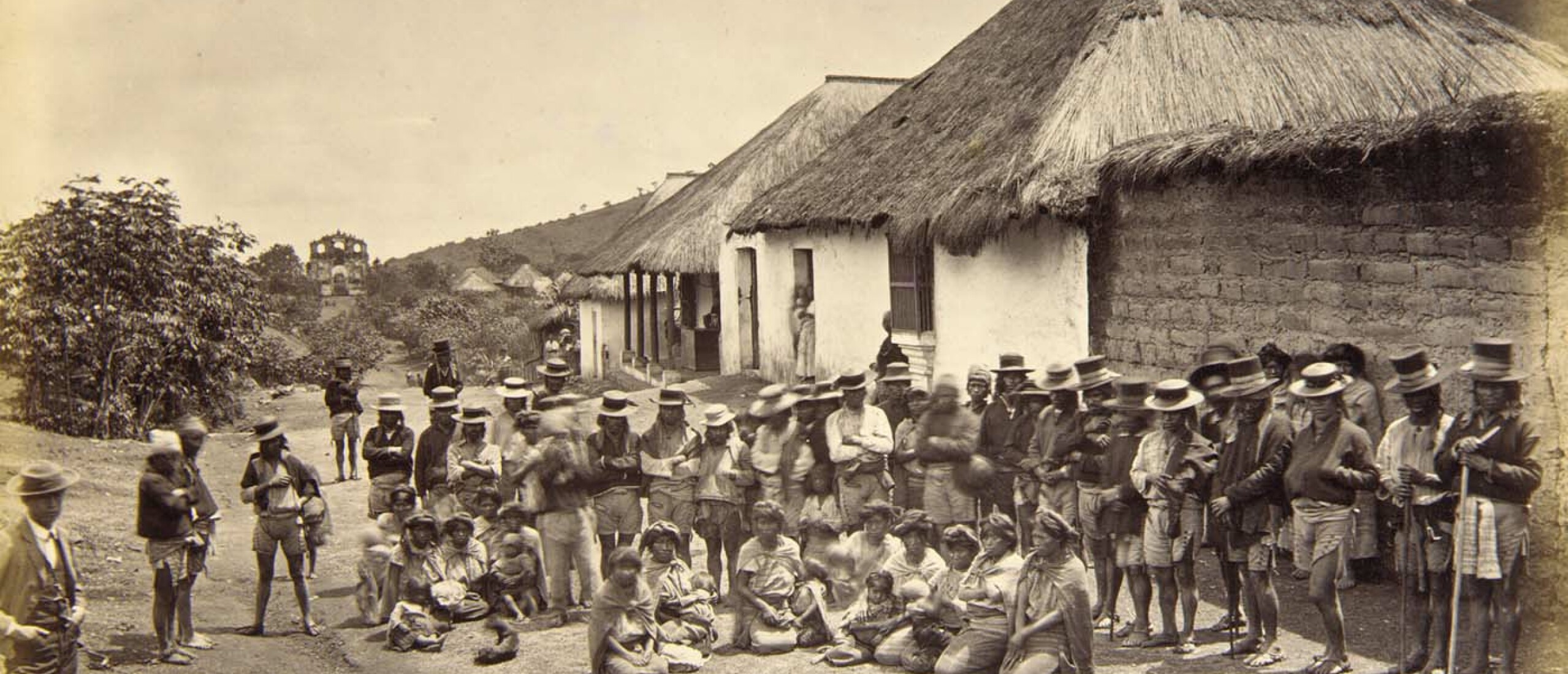
GCC makes an epic journey down the Polochic Valley, and laments not being able to write like his future brother-in-law J J Walker Today's letter, sent by my great grandfather George Charles Champion on 9th December 1879, details his insect-collecting journey, all on mule-back, from his base in San Gerónimo, through very rough and inhospitable country, down into the Polochic Valley, an area that I did not reach during my recent period in Guatemala, partly due to security issues and partly due to the roads and bridges having been washed out in storms. The staple foods he describes, frijoles (black beans), tortillas and fried bananas, have not changed at all! Hacienda de San Gerónimo, Salamá, Guatemala December 9th 1879 My dear Mother, I returned here again yesterday after an absence of 26 days, having in this time travelled about 200 miles on my mule. I wrote a few lines from Senahú, one of the few small villages in the Republic where you can post a letter, Senahú being on the road from Panzós to Cobán. I remained at Senahú with Mr. Reed and his brother a week, but as it rained the greater part of the time and was very cold into the bargain, I was glad to get away, having been almost a prisoner in the house from the wet weather. I went one day with Mr. Reed to explore a large cave in the mountains by the aid of candles and pine wood for a light. We penetrated into a cave about a quarter of a mile and were three hours altogether inside. The place was well worth seeing, the stalactites hanging down from the roof being very pretty. Many places looked like running water or like soft mud moulded into a variety of ferns; this on being touched proved to be as hard as stone. Another day I went to an estate called “Trece Aguas” and on Sunday spent a few hours in the afternoon with a Mr. James, who has a fine coffee estate. All these people here are obliged to live in wretchedly damp miserable ranchos. On November 24th, I left San Juan, a coffee estate on the mountain-side, much warmer, and less rain at this place (though only a few miles away) and remained a week with a young German named Callmeier. I liked this place very much, though I had to live in a miserable place all open at the sides, still warm enough; any amount of oranges and bananas here - the latter with every meal. A magnificent view from San Juan of the Polochic Valley, and of the mountain range on the southern side of the river. I greatly enjoyed the calm hot moonlight nights, they more than made up for the discomforts of living; from the house the ground sloped down very suddenly for about 1000 feet, down here in the valley below very hot indeed. I left San Juan on December 1st and went down into the hot country to the Tinta (only 300 feet above sea); remained here but two days, my man Juan being unwell, and there being very little to be found just now. Left on the 3rd for a coffee and sugar estate over the head of the Polochic Valley between Tucurú and Tamahú, belonging to a Spaniard who made me welcome. We started from La Tinta soon after daylight and arrived about 4.30 p.m., a journey of about nine leagues. This place, Santa Teresa, very hot in the day but very cold in the night, is also on the mountain slopes like San Juan, but is cooler. I did manage to get a bed here, and fed a little better (though of course no meat, sometimes fowl) as Don Manuel Balle lived with his wife and family on the place. Remained here till December 7th, leaving early for Santa Rosa, 30 miles distant, where I arrived about 3.30 p.m. Very hot today, cloudless sky, but cold starlight night, left early next morning, and arrived at San Gerónimo about noon, once more back to civilization. Very hot and dry here now, rain is over in Baja Vera Paz, yesterday a cloudless sky, and the sun very hot indeed. The sugar cane now is in full flower and looks very pretty; a great many women and others now at work, getting in the coffee. The climate of this part of the world is very variable, some places wet, some dry, some hot, some cold, and yet all within a day or two’s journey of one another.
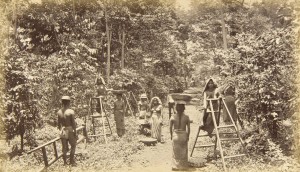 A coffee harvest in Guatemala, by Muybridge, 1875
A coffee harvest in Guatemala, by Muybridge, 1875
I hope to spend Christmas with the Morgans and Mr. Hutchinson here. Am very busy just now getting together a lot of things to send to Mr. Godman. We have not yet received letters from the English mail arriving in the capital on the 4th, and shall not now until after this is sent; was in hopes of being able to answer your letter in this. You must now be in the midst of wintry weather, so we are getting the best of it. It is dark now about half past five, or about half an hour earlier than in June. It will seem strange Christmas with hot weather. I have now been nearly nine months in Guatemala and I hope am pretty well seasoned to the climate. I was in good health all last trip, better even than my native servant. These mountainous places I am now pretty well used to; how the hot country of the coast region will suit me, when I make a longer stay, remains to be seen. In La Tinta, there is a rancho with a large number of horrible looking images of saints etc inside. While I was in the village a few days back it was during a fiesta, in the evening all Indians who could play any music came to the rancho and each played his instrument (one had a fiddle, one a harp, another a marimba etc) at the same time but to different tunes, boys also were going round the village playing other music, you never heard such a din. It was however a queer sight by the light of the candles to see the Indians inside this rancho. There is no priest living in La Tinta, so I suppose each carried out his own idea as to the celebration of the festival. I intended going to Cajabón and Lanquin from Senahú, but the weather was too bad. In nearly all the houses in this country, an Indian woman is employed solely to make tortillas. She grinds the maize on a stone, puts it into thin cakes between her hands, and then bakes it over the fire; this is the principle article of food over the whole country, this and frijoles (black beans). They cook the beans whole, usually mashing them afterwards, they also make a very good soup from them and sometimes cook the shucks to eat separately; one gets to like frijoles in time, if not too greatly. The bananas they cut into slices and fry in grease. I like them very much. This will be one of the few things I shall miss when I return to England. Mr. Morgans is still extraordinarily kind to me; it was a lucky day for me when I made his acquaintance through Mr. McNider, the British Consul in Guatemala. I believe he returns to England early in the New Year. I am afraid you must find my letters rather dull, but I do the best I can, cannot write as Walker does. I wish I could. I am longing to hear from you all. I hurried back from Santa Teresa, so as not to miss writing by this mail and expected to find the letters of the 4th, but was doomed to be disappointed. Am getting short of many things and shall have to make a journey to the capital before long I fear - want many little things which I have in my big trunk in the Gran Hotel. Believe me, Yours affectionately,
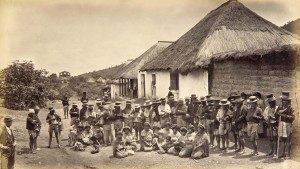 The type of Guatemalans GCC would have met, photographed by Muybridge in 1875
The type of Guatemalans GCC would have met, photographed by Muybridge in 1875


